- Home
- Patricia Cornwell
Predator Page 20
Predator Read online
Page 20
“I don’t know what’s going on with you,” Scarpetta says quietly.
“I think it’s blood.” Lucy makes one of her fast breaks again, changing the subject so abruptly, it’s jolting. “I think Basil’s telling the truth. I think he killed her in the back of the shop. I have a feeling it will turn out to be blood, what we found back there.”
“Let’s wait and see what the labs say.”
“The entire floor lit up. That was weird.”
“Why would Basil say anything about it? Why now? Why to Benton?” Scarpetta says. “That bothers me. Worries me, actually.”
“There’s always a reason with these people. Manipulation.”
“It worries me.”
“So he’s talking to get something he wants, to get his rocks off. How could he make it up?”
“He could know about the missing people from The Christmas Shop. It was in the paper, he was a Miami cop. Maybe he heard about it from other cops,” Scarpetta says.
The more they talk about it, the more she worries that Basil really did have something to do with what happened to Florrie and Helen Quincy. But she can’t imagine how he could have raped and murdered the mother in the back of the store. How did he get her bloody, dead body out of there, or get both dead bodies out of there, assuming he killed Helen, too.
“I know,” Lucy says. “I can’t envision it, either. And if he did kill them, why didn’t he just leave them there? Unless he didn’t want anyone to know they were murdered, wanted them presumed missing, presumed missing of their own volition.”
“That suggests motive to me,” Scarpetta says. “Not compulsive sexual homicide.”
“I forgot to ask you,” Lucy says. “I’m assuming I’m taking you to your house.”
“At this hour, yes.”
“What are you going to do about Boston?”
“We’ve got to deal with the Simister scene, and I just can’t do it now. I’ve had it for the night. Reba’s probably had it.”
“She agreed to let us in, I assume.”
“As long as she’s with us. We’ll do it in the morning. I’m thinking about not going to Boston at all, but it’s not fair to Benton. Not fair to either of us,” she says, unable to keep the frustration and disappointment out of her voice. “Of course, it’s the same thing. I suddenly have urgent cases. He suddenly has an urgent case. All we’ll do is work.”
“What’s his case?”
“A woman dumped near Walden Pond, nude, bizarre fake tattoos on her body that I suspect were done after her murder. Red handprints.”
Lucy grips the steering wheel harder.
“What do you mean, fake tattoos?”
“Painted ones. Body art, Benton says. A hood over her head, a shotgun shell inserted in her rectum, posed, degrading, all the rest. I don’t know much, but I’m sure I will.”
“Do they know who she is?”
“They know very little.”
“Anything similar happen in the area? Similar homicides? With the red handprints?”
“You can divert the conversation all you want, Lucy, but it won’t work. You’re not yourself. You’ve gained weight, and for that to happen means something is off, very off. Not that you look bad, not at all, but I know what you’re like. You’re tired a lot and don’t look well. I hear about it. I haven’t said anything, but I know something’s wrong. I’ve known it for a while. Are you going to tell me?”
“I need to know more about the handprints.”
“I’ve told you what I know. Why?” Scarpetta keeps her eyes on Lucy’s tense face. “What’s going on with you?”
She stares straight ahead and seems to struggle with how to put the right answer together. She’s good at that, so bright, so quick, she can rearrange information until her concoctions are more believable than the truth, and rarely does anybody doubt or question. What saves her is that she doesn’t believe her misinformation and manipulations, doesn’t for a moment forget the facts and fall headlong into her own traps. Lucy always has a rational reason for what she does, and sometimes it’s a good one.
“You must be hungry,” Scarpetta then says. She says it quietly, gently, the way she used to talk when Lucy was an impossible child, always acting out because she hurt so much.
“You always feed me when you can’t do anything else with me,” Lucy says in a subdued way.
“It used to work. When you were a little girl, I could get you to do anything in exchange for my pizza.”
Lucy is silent, her face grim and unfamiliar in the red glow of a traffic light.
“Lucy? Are you going to smile or look at me even once this night?”
“I’ve been doing stupid things. One-night stands. I hurt people. Just the other night in Ptown, I did it again. I don’t want to be close to anybody. I want to be left alone. I can’t seem to help it. This time, it may have been really stupid. Because I haven’t been paying attention. Because maybe I don’t give a shit.”
“I didn’t even know you were in Ptown,” Scarpetta remarks, and she isn’t judgmental.
Lucy’s sexual orientation isn’t what bothers her.
“You used to be careful,” Scarpetta says. “More careful than anyone I’ve ever met.”
“Aunt Kay, I’m sick.”
37
The black shape of the spider covers the back of his hand, floating toward her, passing through the beam of light, inches from her face. He has never moved the spider this close to her. He has placed a pair of scissors on the mattress and illuminates them briefly with the light.
“Say you’re sorry,” he says. “This is all your fault.”
“Give up your evil ways before it’s too late,” Ev says, and the scissors are within reach.
Maybe he is tempting her to grab them. She can barely see them, even in the light. She listens for Kristin and the boys, the spider a blur in front of her face.
“None of this would have happened. You’ve brought it upon yourself. Now comes punishment.”
“This can be undone,” she says.
“Time for the punishment. Say you’re sorry.”
Her heart pounds, her fear so intense she might vomit. She won’t apologize. She has committed no sin. If she says she’s sorry, he will kill her. Somehow, she knows it.
“Say you’re sorry!” he says.
She refuses to say it.
He orders her to say she’s sorry and she won’t. She preaches. She preaches her stupid, mindless garbage about her feeble god. If her god were so powerful, she wouldn’t be on the mattress.
“We can pretend it never happened,” she says in her hoarse, demanding voice.
He can feel her fear. He demands she say she’s sorry. No matter how much she preaches at him, she’s scared. The spider makes her tremble, her legs jumping on the mattress.
“You will be forgiven. You will be forgiven if you repent and let us go. I’ll never tell the police.”
“No, you won’t. You’ll never tell. People who tell get punished, punished in ways you can’t imagine. His fangs can go all the way through a finger, right through the nail,” he says of the spider. “Some tarantulas are repeat biters.”
The spider is almost touching her face. She jerks her head back, gasping.
“They strike and strike. They won’t stop until you rip them off you. If they bite you in a major artery, you die. They can shoot their hairs into your eyes and blind you. It’s very painful. Say you’re sorry.”
Hog told her to say it, say she was sorry, and he sees the door shutting, old wood with peeling paint, the mattress on the dirty, old floor. Then the sound of the shovel digging because he told her not to tell after he did the bad thing and said that people who tell get punished by God, get punished in unthinkable ways until they learn their lesson.
“Ask forgiveness. God will forgive you.”
“Say you’re sorry!” He shines the light in her eyes and she clamps them shut and jerks her face away from the light, but he finds her with it.
She won’t cry.
When he did the bad thing, she cried. He told her she would cry, all right, if she ever told. Then she finally did. She told, and Hog had no choice but to confess because it was true, he did the bad thing, and Hog’s mother didn’t believe a word of it, said Hog didn’t, couldn’t possibly have, that he obviously was sick and delusional.
It was cold and snowing. He didn’t know there was weather like that, had seen it on TV and in the movies but he didn’t know about it from his own experience. He remembers old brick buildings, seeing them through the window of the car when he was driven there, remembers the small lobby where he sat with his mother before the doctor came, a brightly lit place where a man sat in a chair moving his lips, rolling his eyes upward, having a conversation with someone who wasn’t there.
His mother went in and talked to the doctor, leaving him alone in the lobby. She told the doctor the bad thing Hog said he did, that it wasn’t true and he was very sick, that it was a private matter and all she cared about was that Hog got well, that he didn’t go around talking like that, ruining the family’s good name with his lies.
She didn’t believe he did the bad thing.
She told Hog what she intended to say to the doctor. You’re not well, she told Hog. You can’t help it. You imagine things and lie and are easily influenced. I’ll pray for you. You’d best pray for yourself, ask God to forgive you, say you’re sorry for hurting people who have been nothing but kind to you. I know you’re sick, but shame on you.
“I’m going to put him on you,” Hog says, moving the light closer to her. “If you hurt him like she did”—he pokes her forehead with the barrel of the shotgun—“you’ll learn the true meaning of punishment.”
“Shame on you.”
“I told you not to say that.”
He pokes her harder, the barrel of the shotgun striking bone, and she cries out. He presses the pressure light, shines it on her ugly, puffy, blotchy face. She bleeds. Blood runs down her face. When the other one brushed the spider to the floor, his abdomen ruptured and he bled his yellow blood. Hog had to glue him back together.
“Say you’re sorry. She said she was sorry. Do you know how many times she said it?”
He imagines her feeling the furry legs on her bare right shoulder, imagines her feeling the spider move on her skin and stop, lightly gripping her. She sits against the wall and shakes violently, glancing at the scissors on the mattress.
“All the way to Boston. That was a long trip, and it was cold in the back, her naked and tied up. There’s no seat back there, just a cold metal floor. She was cold. I gave them something to think about up there.”
He remembers the old brick buildings with grayish-blue slate roofs. He remembers when his mother drove him up there after he did the bad thing, and then years later, when he went back on his own and lived in the midst of the old brick and slate and didn’t last long. Because of the bad thing, he didn’t last long.
“What have you done with the boys?” She tries to sound strong, tries to sound unafraid. “Let them go.”
He pokes her private places and she jumps and he laughs and calls her ugly and fat and stupid, says no one would ever want her, the same thing he said when he did the bad thing.
“No wonder,” he keeps on, staring at her sagging breasts, her thick, flabby body. “You’re lucky I’m doing this to you. No one else would. You’re too disgusting and stupid.”
“I won’t tell anyone. Just let me go. Where are Kristin and the boys?”
“I went back and got them, poor little orphans. Just like I said. I even returned your car. I’m so pure of heart, not a sinner like you. Don’t worry. I brought them here just like I said.”
“I don’t hear them.”
“Say you’re sorry.”
“Did you drive them up to Boston, too?”
“No.”
“You didn’t really take Kristin…”
“I gave them something to think about up there. I’m sure he’s impressed. I hope he knows. He will soon, one way or other. There isn’t much time left.”
“Who? You can talk to me. I don’t hate you,” and now she sounds sympathetic.
He knows what she’s trying to do. She thinks they’ll be friends. If she talks to him enough and pretends she’s not afraid, even acts as if she likes him, they’ll be friends and he won’t punish her.
“It won’t work,” Hog says. “They all tried that and it didn’t work. It was quite the special delivery. He’d have been impressed if he knew. I’m keeping people busy up there. There isn’t much time left. You’d better make the most of it. Say you’re sorry!”
“I don’t know what you’re talking about,” she says in the same hypocritical voice.
The spider stirs on her shoulder, and he reaches out his hand in the dark and the spider crawls back on it. He walks across the room, leaving the scissors on the mattress.
“Cut your filthy hair,” he says. “Cut all of it off. If you haven’t done it by the time I get back, it will be worse for you. Don’t try to cut the ropes. There’s no place for you to run.”
38
The snow is full of moonlight beyond Benton’s upstairs office window, and the lamps are switched off. He sits at his computer, displaying photographs on the screen until he finds the ones he wants.
There are one hundred and ninety-seven photographs—disturbing, grotesque photographs—and it has been an ordeal to find these particular ones because he is disconcerted by what is before him. He is unsettled. He feels that something beyond the obvious has happened and is happening, and he is personally upset by the case, and at this stage of his vast experience, that is hard to imagine. Distracted, he didn’t jot down the sequence numbers, and it took him the better part of half an hour to find the photographs in question, numbers 62 and 74. He is impressed with Detective Thrush, with the Massachusetts State Police. In a homicide, especially a homicide like this, one can never do too much.
In violent deaths, nothing improves with time. The scene vanishes or is contaminated and one can’t go back. The body changes after death, especially after the autopsy, and one can’t go back, not really. So state police investigators went into high alert and were aggressive with their cameras, and now Benton is overwhelmed with photographs and video recordings and has been studying them since he got home from his visit with Basil Jenrette. During Benton’s twenty-some years with the FBI, he thought he had seen it all. As a forensic psychologist, he assumed he had seen just about every permutation of bizarreness. But he has never seen anything quite like this.
Photographs 62 and 74 aren’t as explicit as most, because they don’t show what is left of the unidentified woman’s destroyed head. They don’t show her in all her faceless, gory horror. She reminds him of a spoon, a hollowed-out shell on the stalk of a neck, her black, raggedly cut hair matted with bits of brain, tissue and dried blood. Photographs 62 and 74 are close-ups of her body from the neck to the knees, and they give him a feeling he can’t describe, the sensation he has when something reminds him of something disturbing he can’t remember. The images are trying to tell him something he already knows but can’t reach. What? What is it?
In 62, the torso is face-up on the autopsy table. In 74, it is facedown, and he clicks back and forth between the two images, studying her naked torso, trying to make sense of the bright red handprints and the angry, abraded skin between her shoulderblades, a six-by eight-inch area of flesh rubbed raw and embedded with what appears to be “wood-like splinters and dirt,” according to the autopsy report.
He has been contemplating the possibility that the red handprints were painted before the woman died, that it has nothing to do with her murder. Maybe for some reason she already had gotten the bodypainting before she encountered her assailant. He has to consider it, but he doesn’t believe it. More likely, it was the killer who turned her torso into a work of art, one that is degrading and suggestive of sexual violence, suggestive of hands grabbing her breasts and forcing open her leg
s, symbols he painted on her while he held her hostage, possibly when she was incapacitated or dead. Benton doesn’t know. He can’t tell. He wishes the case were Scarpetta’s, that she had gone to the scene and done the autopsy. He wishes she were here. As usual, something came up.
He reviews more photographs and reports. The victim is presumed to be in her mid-thirties or early forties, and her postmortem findings reiterate what Dr. Lonsdale said in the morgue: She hadn’t been dead long when her body was discovered on an easement that leads through Walden Woods, not far from Walden Pond, in the wealthy town of Lincoln. Swabs from the physical evidence recovery kit are negative for seminal fluid, and it is Benton’s preliminary assessment that whoever killed her and posed her body in the woods is driven by sadistic fantasies, the sort of sexual fantasies that objectify the victim.
Whoever she is, she was nothing to him. She wasn’t a person, just a symbol, just a thing for him to do with as he pleased, and what pleased him was to degrade and terrorize, to punish, to make her suffer, to force her to face her own impending violent and humiliating death, to taste the shotgun barrel in her mouth and watch him pull the trigger. He might have known her, or she might have been a stranger to him. He might have stalked her and abducted her. No one fitting her description has been reported missing from New England, say the Massachusetts State Police. No one fitting her description has been reported missing from anywhere.
Beyond the pool is the seawall. It is big enough to moor a sixty-foot boat, although Scarpetta doesn’t have one and has never wanted one of any size or description.
She watches the boats, especially at night when bow and stern lights move like aircraft along the dark waterway, silent but for the rumbling of their engines. If the lights are on in the cabins, she watches people moving around or sitting and lifting glasses, laughing or serious or just there, and she doesn’t want to be them or be like them or be with them.
She was never like them. She never wanted anything to do with them. When she was growing up poor and isolated, she wasn’t like them and couldn’t be with them, and that was their choice. Now the choice is hers. She knows what she knows, is on the outside looking into lives that are irrelevant, depressing, empty and scary. She has always feared something tragic would happen to her niece. It is natural for her to entertain morbid thoughts about anyone she loves, but the inclination has always been more extreme with Lucy. Scarpetta has always worried that Lucy would die a violent death. Never did it occur to her that she might get sick, that biology might turn on her, not because it’s personal but because it isn’t.

 Blow Fly
Blow Fly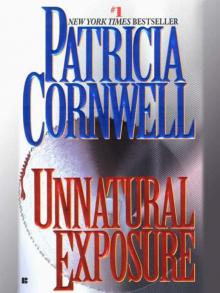 Unnatural Exposure
Unnatural Exposure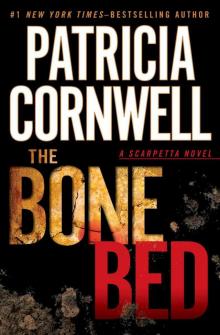 The Bone Bed
The Bone Bed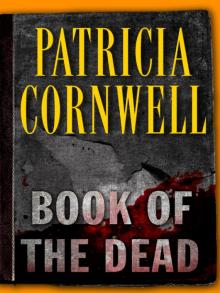 Book of the Dead
Book of the Dead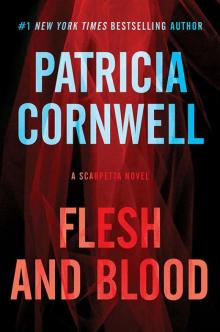 Flesh and Blood: A Scarpetta Novel (Scarpetta Novels Book 22)
Flesh and Blood: A Scarpetta Novel (Scarpetta Novels Book 22)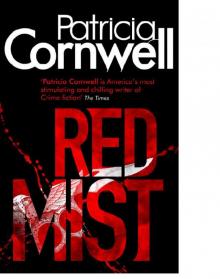 Red Mist
Red Mist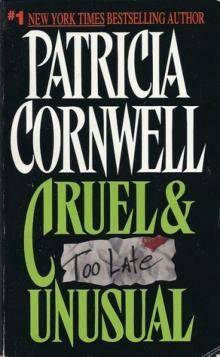 Cruel & Unusual
Cruel & Unusual Hornet's Nest
Hornet's Nest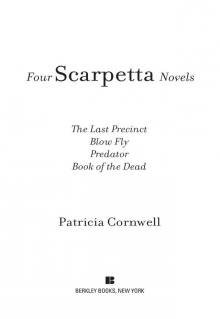 Four Scarpetta Novels
Four Scarpetta Novels Scarpetta's Winter Table
Scarpetta's Winter Table Isle of Dogs
Isle of Dogs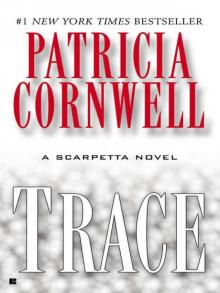 Trace
Trace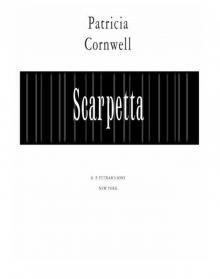 Postmortem
Postmortem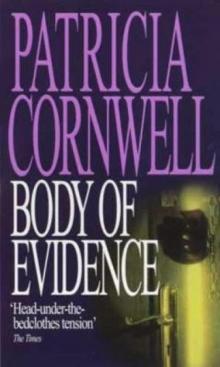 Body of Evidence ks-2
Body of Evidence ks-2 Southern Cross
Southern Cross All That Remains
All That Remains Point of Origin
Point of Origin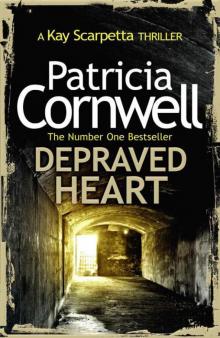 Depraved Heart
Depraved Heart Ruth, a Portrait: The Story of Ruth Bell Graham
Ruth, a Portrait: The Story of Ruth Bell Graham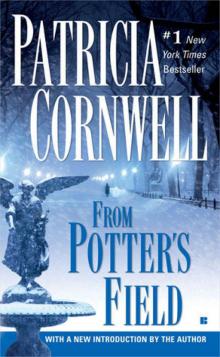 From Potter's Field
From Potter's Field Flesh and Blood
Flesh and Blood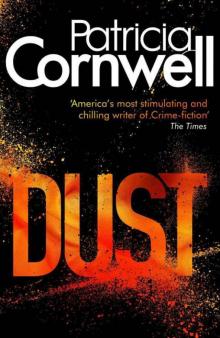 Dust
Dust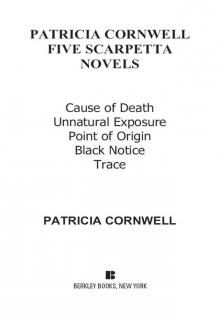 The Body Farm
The Body Farm Port Mortuary
Port Mortuary Quantum
Quantum Portrait of a Killer: Jack the Ripper - Case Closed
Portrait of a Killer: Jack the Ripper - Case Closed Spin (Captain Chase)
Spin (Captain Chase)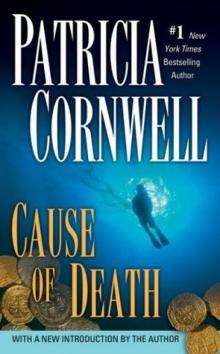 Cause of Death
Cause of Death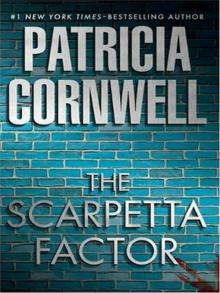 The Scarpetta Factor
The Scarpetta Factor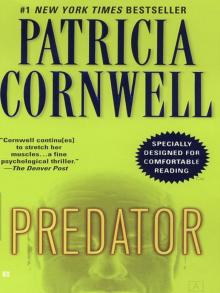 Predator
Predator Scarpetta 18 - Port Mortuary
Scarpetta 18 - Port Mortuary Trace ks-13
Trace ks-13 Portrait of a Killer
Portrait of a Killer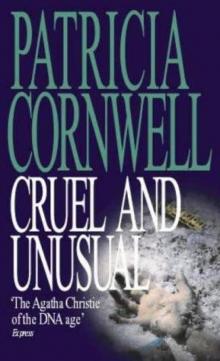 Cruel and Unusual ks-4
Cruel and Unusual ks-4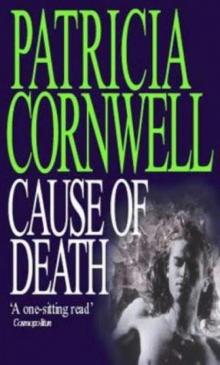 Cause Of Death ks-7
Cause Of Death ks-7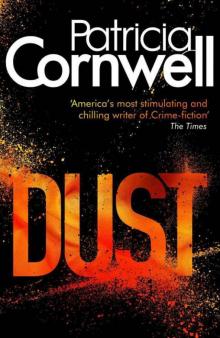 Dust ks-21
Dust ks-21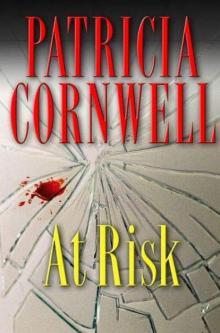 At Risk wg-1
At Risk wg-1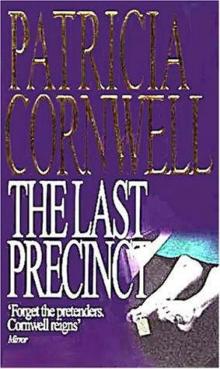 The Last Precinct ks-11
The Last Precinct ks-11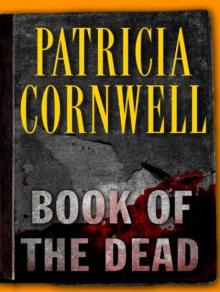 Book of the Dead ks-15
Book of the Dead ks-15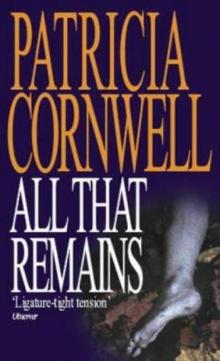 All That Remains ks-3
All That Remains ks-3 Ruth, a Portrait
Ruth, a Portrait Scarpetta's Winter Table (kay scarpetta)
Scarpetta's Winter Table (kay scarpetta) From Potter's Field ks-6
From Potter's Field ks-6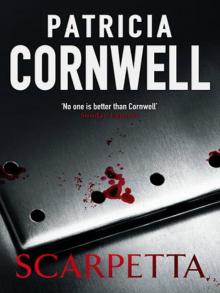 Scarpetta
Scarpetta Isle of Dogs jhabavw-3
Isle of Dogs jhabavw-3 Hornet's Nest jhabavw-1
Hornet's Nest jhabavw-1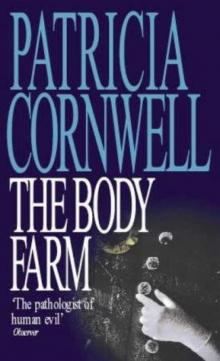 The Body Farm ks-5
The Body Farm ks-5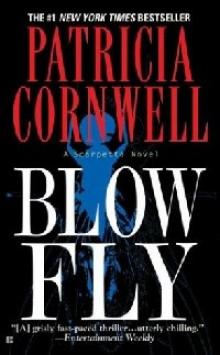 Blow Fly ks-12
Blow Fly ks-12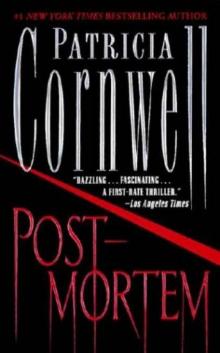 Post Mortem
Post Mortem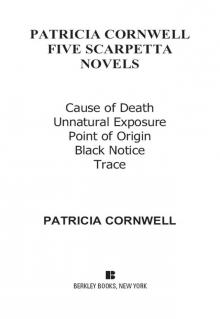 Five Scarpetta Novels
Five Scarpetta Novels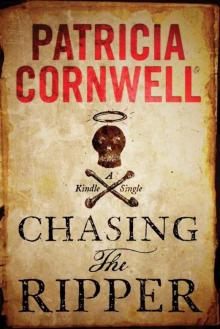 Chasing the Ripper (Kindle Single)
Chasing the Ripper (Kindle Single) Point of Origin ks-9
Point of Origin ks-9 Port Mortuary (2010)
Port Mortuary (2010) Unnatural Exposure ks-8
Unnatural Exposure ks-8 Southern Cross uhabavw-2
Southern Cross uhabavw-2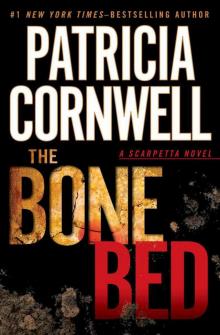 The Bone Bed ks-20
The Bone Bed ks-20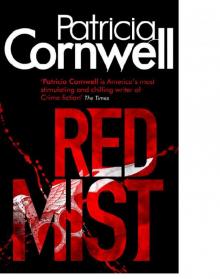 Red Mist ks-19
Red Mist ks-19 Port Mortuary (2010) ks-18
Port Mortuary (2010) ks-18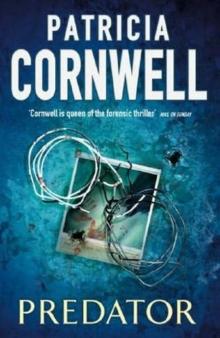 Predator ks-14
Predator ks-14